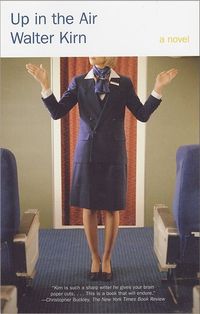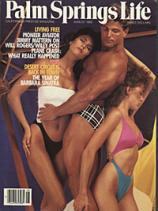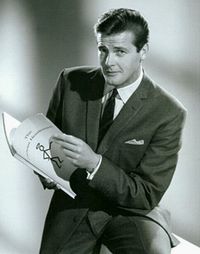 Kevin Weiss, the CEO of the vanity press Author Solutions, posted a video on YouTube asking the Mystery Writers of America, Science Fiction Writers of America, and the Romance Writers of America to meet with him to discuss all the ways he's "helping writers." This from a man who charges writers thousands of dollars to print their book…and then, in the unlikely event they ever sell copies, takes a huge chunk of their royalties, too. Yeah, Kev, that's a big help. Thanks so much.
Kevin Weiss, the CEO of the vanity press Author Solutions, posted a video on YouTube asking the Mystery Writers of America, Science Fiction Writers of America, and the Romance Writers of America to meet with him to discuss all the ways he's "helping writers." This from a man who charges writers thousands of dollars to print their book…and then, in the unlikely event they ever sell copies, takes a huge chunk of their royalties, too. Yeah, Kev, that's a big help. Thanks so much.
Author Solutions, incidentally, is the company that Harlequin partnered with to create their own vanity press operation, initially called "Harlequin Horizons" and quickly redubbed DellArte after the announcement created an uproar. The partnership, and Harlequin's practice of referring rejected authors to DellArte (among other things), led to Harlequin being delisted as an Approved Publisher by just about every major professional writers organization out there. Naturally, this disturbs Kev, who is hoping to peddle similar partnerships to other publishers.
Author Shiloh Walker posted a lengthy, and very detailed, critique of his message on her blog. Here's an excerpt:
You talk about open discourse, and honesty and offering choices, yet do you
openly make aware to your `customers' that while they may spend thousands, you
were quoted as saying in the New York Times that the average number of titles
sold through one of your brands was 150? […] The writer shouldn't pay thousands to 'self-publish' and then have to share the profits.[…] The organizations you're calling out to `discuss' things are the advocates for
writers. Period. A writer that goes in with you is likely to spend thousands
sell…how many books? Unless you can guarantee me four, five figures, (1000
books, 10,000) there's nothing about your company that has me interested in
telling either of my writer organizations, "Hey, maybe these people can offer
choices to those who are seriously pursuing a writing career."
There's no reason for any professional writers organization to meet with Weiss. Their beef is with Harlequin, a real publisher, not with his vanity press. Such a meeting would only give him, by association, the credibility he so desperately seeks. And let's face it, Authors Solutions is not a publisher, it's an outrageously over-priced printer. Nor is it a maverick offering a genuine alternative for authors. In fact, Author Solutions is no solution at all. 
What he fails to mention in his videos (for good reason) is that an author can print their book in trade paperback or hardcover FOR FREE through companies like Lulu and Blurb (the companies take their share when a book is bought by a reader, but the author sets the purchase price)…or get their books on Amazon, at no charge with no middleman at all, using the Kindle platform. Writers can get everything Author Solutions offers elsewhere with no out-of-pocket expense. (In fact, my Mom just did it with her memoir Active Senior Living. She's made hundreds of dollars in just a few weeks…and isn't out a dime).
Those free alternatives have made companies like Author Solutions totally irrelevant, which is why he is so desperate to create partnerships with major publishers in the hopes of taking advantage of their slush pile.
However, if the writers organizations succeed in convincing publishers that it's wrong to try to monetize the slush pile and to take advantage of the desperation and gullibility of aspiring authors, then Author Solutions is screwed. That's why Kev is so worried about the Harlequin situation. He already lost big time when Harlequin took their name off their new vanity press venture. He was counting on trading on the Harlequin name, hoping that naive writers would assume that they were being published by the "real" Harlequin. That was certainly the whole point of the venture. But DellArte carries no such cache…in fact, without Harlequin steering the writers it rejects to the vanity press, it has no reason to exist, nothing to set it apart from all the other over-priced "self-publishing" companies out there.
So is it any wonder Kev is making YouTube appeals?
UPDATE: Victoria Strauss at the Writer Beware Blog also offers an excellent critique of Weiss' video. She writes, in part:
Will a sit-down, if it happens, be productive? Good question. Part of the objection to the AS/Harlequin/Nelson "partnerships" was the misleading way in which they were presented–seriously overstating the benefits of self-publishing for many if not most authors, using the carrot of possible transition to commercial publishing as a hook to draw in customers–as well as, in Nelson's case, a promise of referral fees for agents who steered authors its way, plus a truly exorbitant cost. Given that high costs and less-than-transparent presentation are at the core of AS's services, I don't think that's likely to change. Also, can there ever be a meeting of the minds between professional commercial writers' groups and a company that wants to present fee-based publishing as an "indie revolution?" Part of the problem, I think, is that Weiss is speaking a different language.






